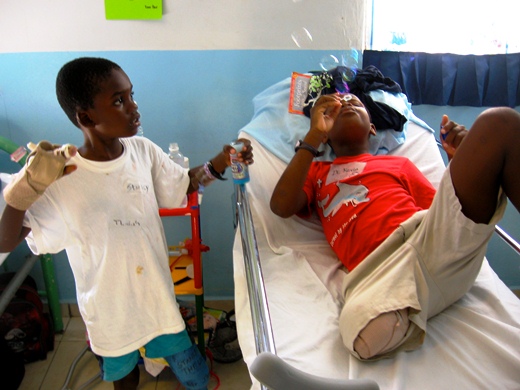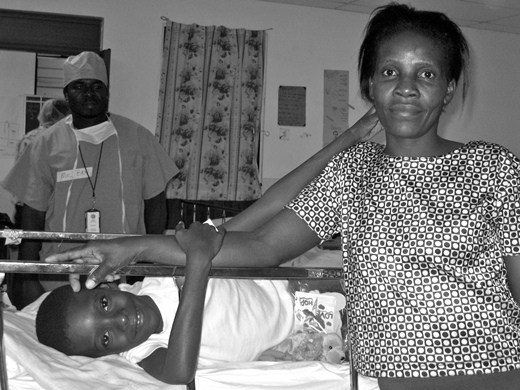Men anpil, chay pa lou. (Many hands lighten the load.) – Haitian proverb
Sometimes the scope of an event, the trauma of the loss, the resilience exhibited amidst struggles is just too overwhelming. The earthquake in Haiti is a prime example. The issues surrounding this earthquake – poverty, politics, loss, strength, hope – are each weighty components that, whencompiled around a single thirty second occurrence, seem inconceivable to wrap our minds and hearts around. As the Haitians and the world respond to this situation, it can be tempting to slip into despair. There is just too much to do.
After the earthquake hit, like many people, I felt the pull to help in any way possible. As a physician trained in tropical medicine, I was in a unique position to provide a tangible skill to contribute to relief efforts. Two weeks after the earthquake, I had the privilege of traveling to the Dominican Republic to address some of the medical needs as a volunteer physician. I arrived with a medical team to care for a group of Haitian children and their families, all of whom had harrowing stories of survival, pain, separation, reunion and tentative hope and healing. Many of the children had suffered amputations of limbs, infections, and extreme pain. All of them had lost a loved one and many had watched a friend or family member die.
We focused on the immediate needs of these children and their families – controlling their physical pain, treating their wounds and infections, encouraging nourishment of their bodies with food and water, tending to their souls with smiles and playtime. We then began to look to the future, figuring out how they could get shelter and clothes, long-term rehabilitation and be reunited with other family members. I again felt the unwanted intrusion of despondency. We had brought antibiotics to treat infections, medications to treat pain, equipment to perform skin grafts. But we couldn't fix the infrastructure of their country. We couldn't alter the historic political relationship with their Dominican Republic neighbor. And the situation began to feel insurmountable.
Every time the scope of needs started to feel overwhelming I would focus on their faces. And know that our small group of volunteers would make a difference in the lives of these few Haitians. That was our pledge. Contributing to the well-being of that one family or individual had to be the goal. It is a similar concept to that of One Day's Wages. Tackling extreme global poverty can seem like an impossible task when taken as a whole. Despair and complacency creeps in. “What can I do?” we wonder. But we each can do our part. We each can contribute our skills and resources. And those gifts, taken together, can change the world. Many hands lighten the load.
The Haitian situation, although now fading from the news headlines, is a long-term reality for these vibrant and resilient people. And they will need long-term support, innovation and care. From each of us. Let us continue to walk alongside them, to lend many hands.
* Consider making a donation to ODW's Haiti Relief & Rebuild Fund.
Dr. Mary Weirusz is a family medicine physician at Group Health in Seattle and a member of the Advisory Board of One Day's Wages.


